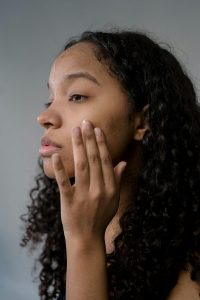
Acne, the bane of many people’s existence, can wreak havoc on one’s confidence and self-esteem. Whether you’re a teenager battling hormonal changes or an adult dealing with stress-induced breakouts, finding the right acne-prone skin treatment is crucial for restoring a clear complexion.
In this comprehensive guide, we delve into the best solutions tailored for acne-prone skin, exploring options ranging from dermatologist-recommended treatments to natural remedies.
Best Acne Prone Skin Treatment:
When it comes to combating acne, the sheer number of products available can be overwhelming. However, certain treatments have proven to be particularly effective for acne-prone skin.
Among the top contenders are products containing benzoyl peroxide, salicylic acid, and retinoids. These ingredients work by unclogging pores, reducing inflammation, and preventing future breakouts.
For those with oily skin, opting for non-comedogenic products is essential to prevent pore blockage. Additionally, incorporating oil-free moisturizers and gel-based cleansers into your skincare routine can help regulate oil production without exacerbating acne.
Acne Prone Skin Treatment for Oily Skin:
For individuals grappling with oily skin, managing excess sebum production is paramount in combating acne. Niacinamide, a form of vitamin B3, serves as a potent ally in this battle, actively regulating oil secretion and promoting a balanced complexion.
Meanwhile, sulfur, renowned for its antibacterial prowess, swoops in to tackle acne-causing bacteria, curbing breakouts and preventing future flare-ups. These ingredients work synergistically to not only address acne but also to minimize oiliness, resulting in skin that feels refreshed and harmonized.
When selecting products, prioritize those containing niacinamide and sulfur to effectively manage oily skin and maintain a clear, radiant complexion.
Acne Prone Skin Treatment Dermatologist:
When over-the-counter treatments prove ineffective in managing acne, seeking guidance from a dermatologist becomes paramount. Dermatologists possess the expertise to evaluate your skin condition comprehensively and tailor a treatment plan accordingly.
They may prescribe potent medications like oral antibiotics to combat bacterial overgrowth, topical retinoids to promote cell turnover and unclog pores, or isotretinoin, a powerful medication reserved for severe cases, which targets excessive oil production and reduces inflammation.
These treatments address acne at its source, offering not only immediate relief but also long-term management by preventing future breakouts. Dermatologist-supervised care ensures personalized attention and access to advanced treatments, paving the way for clearer, healthier skin.
Acne Prone Skin Treatment Cream:
Acne treatment creams are a cornerstone in the battle against acne, providing targeted solutions for specific areas of concern. Among the most widely recommended ingredients in these creams are benzoyl peroxide and adapalene, both renowned for their efficacy in combating acne.
Benzoyl peroxide works by penetrating the pores to eliminate acne-causing bacteria, effectively reducing inflammation and preventing future breakouts. On the other hand, adapalene, a type of retinoid, promotes cell turnover, preventing pores from becoming clogged and minimizing the formation of new blemishes.
When incorporating acne treatment creams into your skincare routine, it’s imperative to adhere to usage instructions meticulously. Applying a thin layer of the cream to affected areas once or twice daily is typically recommended.
However, it’s crucial to start with a lower concentration to minimize the risk of irritation and dryness, gradually increasing as tolerated. Additionally, it’s essential to use a gentle cleanser and moisturizer alongside these creams to maintain skin hydration and minimize potential side effects.
Furthermore, it’s advisable to perform a patch test before applying the cream to larger areas of the face to assess for any adverse reactions. While some initial dryness or redness may occur, persistent irritation warrants discontinuation and consultation with a dermatologist.
Overall, with consistent and careful use, acne treatment creams can be a highly effective tool in achieving clearer, healthier skin.
How to Cure Acne Naturally in 3 Days:
Natural remedies for acne offer a holistic approach to skincare, focusing on gentle yet effective ingredients that promote skin health and combat acne-causing bacteria. Tea tree oil, extracted from the leaves of the Melaleuca alternifolia tree, is renowned for its potent antibacterial properties, making it a popular choice for treating acne.
It works by reducing inflammation and killing acne-causing bacteria, helping to unclog pores and prevent breakouts.
Similarly, honey has been used for centuries as a natural remedy for various skin conditions, including acne. Its antimicrobial properties help to kill bacteria on the skin’s surface, while its soothing properties reduce inflammation and redness.
Honey also acts as a humectant, drawing moisture into the skin and promoting healing.
Aloe vera, known for its cooling and soothing properties, is another excellent natural remedy for acne. It contains enzymes, vitamins, and minerals that help to reduce inflammation, soothe irritated skin, and promote healing.
Aloe vera also helps to moisturize the skin without clogging pores, making it suitable for all skin types, including acne-prone skin.
In addition to topical remedies, maintaining a healthy diet is crucial for supporting skin health and reducing acne flare-ups. A diet rich in fruits and vegetables provides essential vitamins, antioxidants, and nutrients that support skin regeneration and repair.
Omega-3 fatty acids, found in fatty fish like salmon and flaxseeds, have anti-inflammatory properties that can help reduce redness and swelling associated with acne.
While natural remedies may not provide instant results like conventional treatments, they offer a gentle and sustainable approach to managing acne while promoting overall skin health.
Incorporating these remedies into your skincare routine, along with a balanced diet, can help alleviate acne symptoms and achieve clear, radiant skin in the long term.
Skin Care Routine for Acne-Prone Sensitive Skin:
When dealing with acne-prone sensitive skin, a gentle and careful approach to skincare is paramount. Sensitivity exacerbates the risk of irritation, inflammation, and exacerbation of acne lesions, necessitating a meticulous routine tailored to soothe and nurture the skin.
Fragrance-free and hypoallergenic products are essential choices to minimize potential triggers for sensitivity reactions. Fragrances, dyes, and harsh chemicals commonly found in skincare products can aggravate sensitive skin, leading to redness, itching, and discomfort.
Opting for products devoid of these irritants helps to maintain the skin’s delicate balance and reduce the likelihood of adverse reactions.
A well-rounded skincare routine for acne-prone sensitive skin should begin with a gentle cleanser designed to remove impurities without stripping the skin of its natural oils.
Look for formulas that feature mild surfactants and hydrating ingredients to cleanse effectively while maintaining the skin’s moisture barrier.
Following cleansing, incorporating a soothing toner enriched with calming ingredients such as witch hazel or rose water can further alleviate inflammation and redness.
These natural astringents help to tighten pores, reduce excess oil production, and soothe irritation, promoting a clearer complexion.
Completing the routine with a lightweight, non-comedogenic moisturizer is essential to replenish hydration levels without exacerbating acne. Moisturizers formulated specifically for sensitive skin provide hydration without occluding pores, preventing the formation of new blemishes.
Ingredients like hyaluronic acid and ceramides help to lock in moisture and fortify the skin’s natural barrier function, enhancing resilience against environmental stressors.
Consistency and adherence to this gentle skincare regimen are crucial for managing acne-prone sensitive skin effectively, fostering a healthier, calmer complexion over time.
Best pimples treatment for face
Best Medicine for Pimples:
In the realm of acne treatment, selecting the best medicine for pimples is crucial for achieving clear, healthy skin. Benzoyl peroxide and salicylic acid stand out as frontline treatments due to their proven efficacy in targeting acne at its source.
Benzoyl peroxide works by penetrating the pores to eliminate acne-causing bacteria, reduce inflammation, and unclog pores, making it a go-to choice for many individuals combating breakouts.
On the other hand, salicylic acid exfoliates the skin’s surface, effectively removing dead skin cells and excess oil, thus preventing pore blockage and reducing the occurrence of pimples.
However, for those with more severe or persistent acne, a multi-pronged approach may be necessary. Dermatologists often prescribe oral medications such as antibiotics or hormonal therapy to address underlying factors contributing to acne development.
Antibiotics work by targeting bacterial infections within the pores, while hormonal therapy regulates hormone levels, particularly in cases of hormonal acne triggered by fluctuations in estrogen and testosterone.
These oral medications provide systemic relief, targeting acne from within the body and offering long-term solutions for individuals struggling with persistent breakouts.
Ultimately, the best medicine for pimples depends on the severity and underlying causes of acne, as well as individual skin type and responsiveness to treatment.
Consulting with a dermatologist can help determine the most suitable course of action, ensuring effective management and prevention of pimples for clearer, smoother skin.
Conclusion
Finding the right acne-prone skin treatment requires patience and experimentation. Whether you opt for over-the-counter products, dermatologist-recommended treatments, or natural remedies, consistency is key to achieving clear, radiant skin.
By understanding your skin type and specific concerns, you can tailor your skincare routine to effectively combat acne and regain your confidence.
Further Reading:
FAQs:
How do you get rid of acne-prone skin?
To effectively get rid of acne-prone skin, adopt a gentle skincare routine with non-comedogenic products. Incorporate ingredients like benzoyl peroxide or salicylic acid to target acne-causing bacteria and unclog pores. Consider consulting a dermatologist for personalized treatment options, which may include topical or oral medications tailored to your specific needs. Maintain a balanced diet, stay hydrated, and manage stress levels to promote overall skin health. Avoid picking or squeezing pimples to prevent scarring and further irritation. Consistency and patience are key as results may take time to manifest.
What is best for acne-prone skin?
For acne-prone skin, a combination of topical treatments like benzoyl peroxide and salicylic acid, along with oral medications such as antibiotics or hormonal therapy for severe cases, is often effective. Additionally, maintaining a consistent skincare routine with non-comedogenic products, avoiding harsh ingredients, and keeping the skin clean can help manage breakouts. Consulting a dermatologist for personalized recommendations and treatments tailored to individual needs is also advisable for achieving optimal results and maintaining clear, healthy skin.
What are the top 3 best acne treatments?
The top three best acne treatments are benzoyl peroxide, salicylic acid, and retinoids. Benzoyl peroxide effectively targets acne-causing bacteria, reduces inflammation, and unclogs pores. Salicylic acid exfoliates the skin’s surface, removing dead skin cells and excess oil to prevent pore blockage. Retinoids promote cell turnover, unclog pores, and reduce the formation of acne lesions, making them highly effective for treating both inflammatory and non-inflammatory acne.
Which treatment is best for acne?
The best treatment for acne varies depending on individual factors such as skin type, severity of acne, and underlying causes. However, commonly recommended treatments include topical agents like benzoyl peroxide and salicylic acid for mild cases, while oral medications such as antibiotics or hormonal therapy may be prescribed for more severe acne. Consulting with a dermatologist is essential to determine the most effective treatment plan tailored to your specific needs and to achieve optimal results in managing acne.
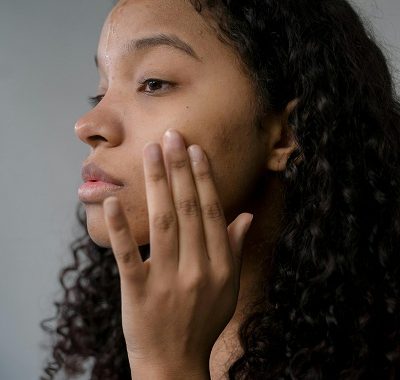
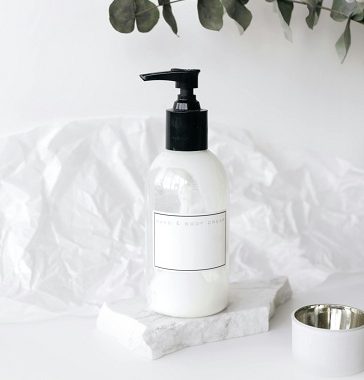
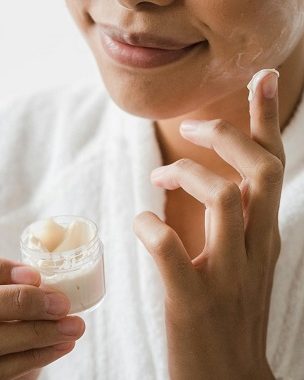
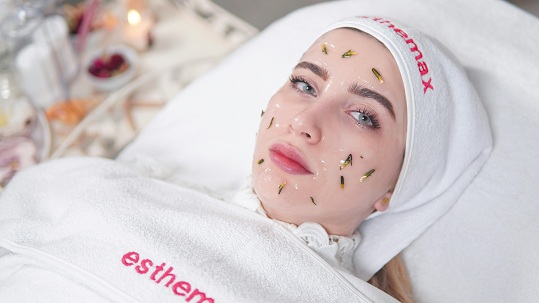
Pingback: 10 Skin Care Habits That Can Worsen Acne and Dermatologists’ Tips for Clearer Skin - Acnes derma relief